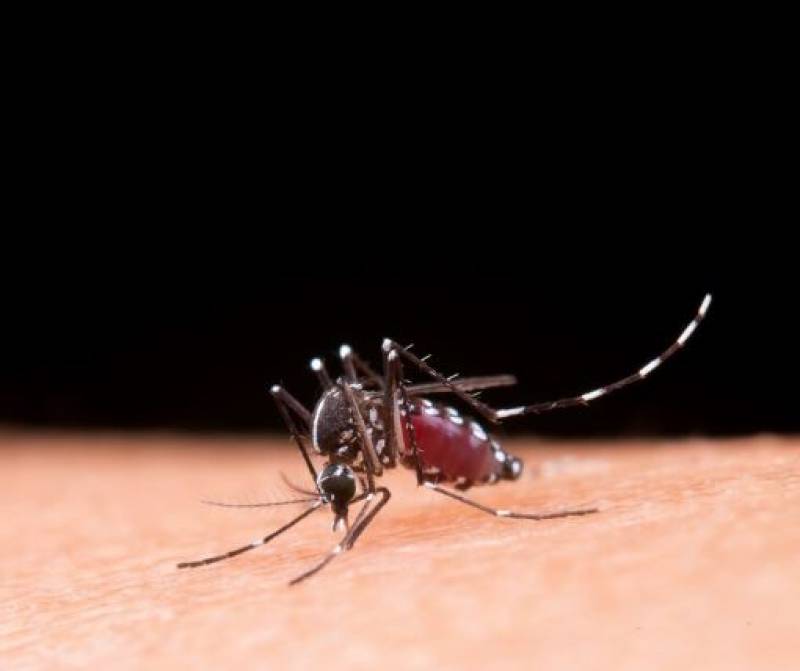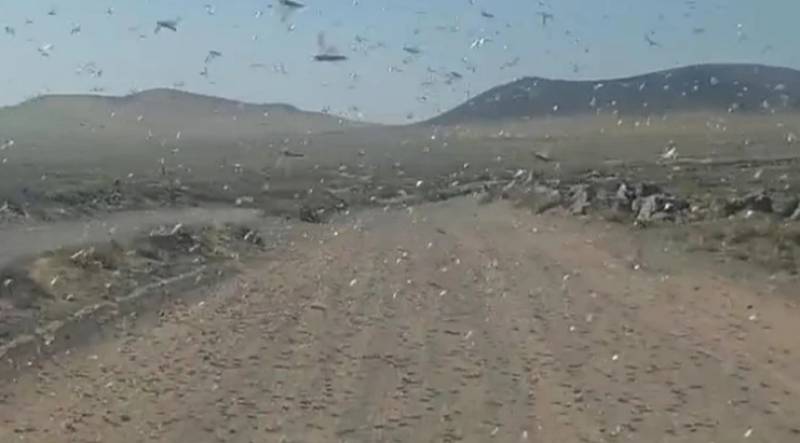- Region
- Vega baja
- Marina Alta
- Marina Baixa
- Alicante
- Baix Vinalopo
- Alto & Mitja Vinalopo
-
ALL TOWNS
- ALICANTE TOWNS
- Albatera
- Alfaz Del Pi
- Alicante City
- Alcoy
- Almoradi
- Benitatxell
- Bigastro
- Benferri
- Benidorm
- Calosa de Segura
- Calpe
- Catral
- Costa Blanca
- Cox
- Daya Vieja
- Denia
- Elche
- Elda
- Granja de Rocamora
- Guardamar del Segura
- Jacarilla
- Los Montesinos
- Orihuela
- Pedreguer
- Pilar de Horadada
- Playa Flamenca
- Quesada
- Rafal
- Redovan
- Rojales
- San Isidro
- Torrevieja
- Comunidad Valenciana
article_detail
Date Published: 07/08/2024
Spain on alert: Oropouche virus and West Nile virus spark concern
Diseases caused by mosquitoes, ticks and other insects are on the rise throughout Spain

As summer heats up, Spain finds itself grappling with the threat of insect-borne tropical diseases like never before. Health authorities are shining a spotlight on the Oropouche virus, a dengue-like illness typically found in South America, and the familiar foe, West Nile Virus (WNV).
With three confirmed cases of Oropouche virus in returning travellers from Cuba, and a surge in WNV cases, Spain's health officials are urging everyone to take preventive action.
The Oropouche virus: A new concern
The Oropouche virus, usually transmitted by the tiny black fly, has made its way to Spain. While it's commonly found in South American countries, this virus has now been detected in three travellers from different Spanish communities, according to the European Centre for Disease Prevention and Control (ECDC).
Oropouche can also be contracted through mosquito stings, although this is rare.
The affected individuals have since recovered, but at least two people have died in Brazil. Closer to home, Italy and Germany have also reported similar cases in travellers returning from Cuba.
Symptoms of Oropouche virus infection include sudden onset of fever, headache, joint stiffness, aches and pains, and in some cases, photophobia and double vision. While most cases are mild, severe infections can lead to aseptic meningitis.
West Nile virus: a persistent threat
Across Spain, health authorities are also grappling with a rise in West Nile virus cases. A total of 26 diagnoses have been confirmed so far this year, exceeding those reported during the whole of 2023 (20), according to data from the Health Alerts and Emergencies Coordination Centre.
This week, the Andalucían government confirmed nine cases in the province of Sevilla, adding to the community’s tally of 17 infections since January, including two deaths.
Crimean-Congo hemorrhagic fever: a potentially deadly disease
Crimean-Congo hemorrhagic fever is a viral disease that is generally transmitted by ticks, specifically the Hyalomma tick which originated in Africa.
In May, the Ministry of Health for Castile and León in northwestern Spain issued an urgent warning for holidaymakers after a patient died from the disease following a tick bite in Salamanca and last month, a 74-year-old man from Madrid was dead less than 24 hours after becoming infected.
Recommendations for international travel
The Spanish Ministry of Health has issued recommendations for international travellers heading to regions affected by the Oropouche virus. These include measures to prevent mosquito bites, especially for pregnant women and individuals with compromised immune systems or chronic diseases.
The recommendations range from using mosquito repellents with active ingredients like DEET or picaridin to wearing long, light-coloured clothing and using mosquito nets for infants.
Also of interest: The comet of the century will soon be visible from Spain
Image: Freepik
staff.inc.ali
Loading
See more news about animals in Spain:
OR
Sign up for the Spanish News Today Editors Roundup Weekly Bulletin to get a comprehensive email with all the week’s news for Spain, Murcia, Alicante and Andalucía.
Get a sneak peek – here are a few of our recent Subscription Bulletins:
Discount Special Offer subscription:
36.95€ for 48 Editor’s Weekly News Roundup bulletins!
Please CLICK THE BUTTON to subscribe.
Contact Murcia Today: Editorial 000 000 000 /
Office 000 000 000


























